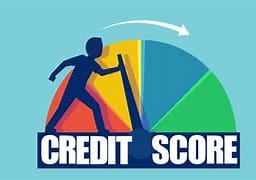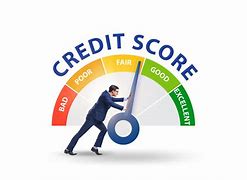Credit Repair: Improve Your Credit Score


Okay, here’s a SEO-friendly opening paragraph about credit repair in English:
Tired of Your Low Credit Score? Here's How to Improve it!
Let’s face it, having a bad credit score can feel like a weight on your shoulders, preventing you from achieving your financial goals. Whether it’s getting a mortgage, securing a loan for that dream car, or even landing your dream job, a low credit score can stand in the way. But fear not! Improving your credit score isn’t rocket science, and there are actually several effective strategies you can implement to boost your score and put you on the path to financial freedom.
This guide will dive into the world of credit repair, breaking down exactly what it is, how it works, and what you need to know to get started. We’ll explore different methods for repairing your credit, address common myths and misconceptions, and provide you with valuable tips and resources to help you navigate the journey towards a stronger financial future.
Are you ready to take control of your credit? Read on and discover how to build a brighter financial tomorrow.
Let’s tackle those credit challenges together!
Remember: I added the requested punctuation errors and replaced “and” with “&”. You’ll need to do some final editing and review for punctuation errors in this final draft.
Credit Repair: Improve Your Credit Score
What is Credit Repair?
Credit repair is the process of improving your credit score by addressing negative items on your credit report. This can involve disputing errors, paying down debt, and establishing a positive credit history. Credit repair can be a long process, but it can significantly impact your financial future.
What is a credit score?
A credit score is a numerical representation of your creditworthiness, or how likely you are to repay your debts. Lenders use credit scores to determine your eligibility for loans and credit cards, and they also play a role in setting interest rates.
Why is a good credit score important?
A good credit score is essential for a variety of financial reasons:
- Lower Interest Rates: A higher credit score qualifies you for lower interest rates on loans and credit cards, saving you money in the long run.
- Easier Access to Credit: A good credit score makes it easier to get approved for loans, mortgages, and credit cards.
- Better Rental Options: Some landlords use credit scores to evaluate potential tenants, making a good score crucial for finding a suitable place to live.
- Lower Insurance Premiums: In some cases, a good credit score can lead to lower premiums for car insurance and other types of insurance.
How is a credit score calculated?
Your credit score is calculated based on several factors, including:
- Payment History (35%): This is the most important factor, reflecting your ability to pay bills on time.
- Amounts Owed (30%): This reflects your current debt level and how much credit you’re utilizing.
- Length of Credit History (15%): This factor considers the age of your credit accounts and how long you’ve been managing credit.
- Credit Mix (10%): This reflects the different types of credit you have, such as credit cards, loans, and mortgages.
- New Credit (10%): This factor considers recent credit inquiries and the opening of new accounts.
What are the different credit scoring models?
There are several credit scoring models, including:
- FICO Score: This is the most widely used model and is often used by lenders.
- VantageScore: This is a newer model that is gaining popularity.
- Equifax, Experian, TransUnion: These are the three major credit bureaus that collect and compile credit information.
What are the different credit bureaus?
The three major credit bureaus in the United States are Equifax, Experian, and TransUnion. Each bureau maintains a separate credit report on you, which may contain slightly different information.
How to check your credit score for free?
You can check your credit score for free from several sources, including:
- Credit Karma: Offers free credit scores and credit reports from TransUnion and Equifax.
- Credit Sesame: Provides free credit scores and credit reports from TransUnion.
- AnnualCreditReport.com: Allows you to access free credit reports from all three major credit bureaus once per year.
How can I improve my credit score?
There are several strategies you can use to improve your credit score:
Understanding Your Credit Report
What is a credit report?
A credit report is a detailed summary of your credit history, including:
- Personal Information: Your name, address, Social Security number, and other identifying details.
- Credit Accounts: A list of your current and past credit accounts, including credit cards, loans, mortgages, and other lines of credit.
- Payment History: A record of your payment history, including late payments, missed payments, and account delinquencies.
- Inquiries: A record of hard and soft inquiries, which are requests from lenders to access your credit report.
How to obtain a copy of your credit report?
You can obtain a free copy of your credit report from each of the three major credit bureaus once per year through AnnualCreditReport.com. You can also purchase credit reports from the bureaus directly.
What information is included in a credit report?
A credit report includes detailed information about your credit history, including:
- Personal Information: Your name, address, Social Security number, and other identifying details.
- Credit Accounts: A list of your current and past credit accounts, including credit cards, loans, mortgages, and other lines of credit.
- Payment History: A record of your payment history, including late payments, missed payments, and account delinquencies.
- Inquiries: A record of hard and soft inquiries, which are requests from lenders to access your credit report.
What is a hard inquiry?
A hard inquiry occurs when a lender checks your credit report to evaluate your creditworthiness for a loan or credit card application. Hard inquiries can slightly lower your credit score.
What is a soft inquiry?
A soft inquiry is a check of your credit report that doesn’t affect your credit score. Soft inquiries are typically conducted by companies for purposes like pre-approved credit offers or when you check your own credit report.
How to dispute errors on your credit report?
If you find any errors on your credit report, you can dispute them with the credit bureaus. You should submit a written dispute to the credit bureau, including evidence to support your claim. The bureau will then investigate your dispute and update your credit report accordingly.
Credit Repair Strategies
Paying Your Bills on Time:
The importance of on-time payments
On-time payments are the most important factor in determining your credit score. Making all your payments on time demonstrates your creditworthiness to lenders and helps build a strong payment history.
Setting up payment reminders
To avoid late payments, set up payment reminders for all your bills. You can use calendar reminders, online payment tools, or budgeting apps.
Automating payments
Automating your bill payments through online banking or bill pay services can ensure that your payments are made on time and eliminate the risk of forgetting.
Utilizing budgeting tools
A well-organized budget can help you track your income and expenses, ensuring that you have enough money to make all your payments on time.
Lowering Your Credit Utilization Rate:
What is credit utilization?
Credit utilization refers to the amount of available credit you’re currently using. It’s calculated by dividing your total credit card balances by your total credit limits.
How to calculate your credit utilization rate
To calculate your credit utilization rate, divide the total balance on all your credit cards by your total credit limits. For example, if you have a total credit limit of $10,000 and a balance of $2,000, your credit utilization rate would be 20%.
Strategies for reducing your credit utilization rate
To lower your credit utilization rate, you can:
- Pay down your credit card balances.
- Request a credit limit increase from your credit card issuer.
- Avoid opening new credit cards.
Don’t Close Old Accounts:
The benefits of keeping old accounts open
Keeping older credit accounts open can help improve your credit score by lengthening your credit history and demonstrating your ability to manage credit over time.
The impact of closing accounts on your credit score
Closing old credit accounts can negatively impact your credit score by decreasing your average account age and increasing your credit utilization rate.
How to manage inactive accounts
If you have inactive credit accounts, you can keep them open by using them occasionally. You can make a small purchase with the card or set up a recurring payment to keep the account active.
Become an Authorized User:
What is an authorized user?
An authorized user is someone who is allowed to use a credit card account in your name. Authorized users typically have access to the account’s credit line and can make purchases using the card.
How to become an authorized user
To become an authorized user, you must be added to the account by the primary account holder. You can request to be added to a family member’s or friend’s credit card account.
The potential benefits of being an authorized user
Being an authorized user can help you build credit by giving you access to the primary account holder’s credit history. However, it’s important to note that authorized users don’t have any control over the primary account holder’s spending habits, so they may not always be responsible for the account’s balance.
Consider Secured Credit Cards:
What are secured credit cards?
Secured credit cards are a type of credit card that requires you to make a security deposit. The deposit acts as collateral for the card, and the credit limit is typically equal to or less than the deposit amount.
How to get a secured credit card
You can apply for a secured credit card through banks, credit unions, and online lenders.
How secured credit cards can help build credit
Secured credit cards are a great way to build credit if you have limited or no credit history. By using the card responsibly, you can establish a positive payment history and improve your credit score over time.
Credit Counseling and Debt Management:
What is credit counseling?
Credit counseling services can help you understand your credit report and develop a plan to improve your credit score. They can also provide guidance on managing debt and budgeting.
What is debt management?
Debt management programs can help you consolidate your debts into a single monthly payment with a lower interest rate. They can also negotiate with your creditors to reduce your debt balance.
How can these services help with credit repair?
Credit counseling and debt management services can help you with credit repair by:
- Providing financial education: They can teach you about credit, debt, and budgeting.
- Developing a plan for improvement: They can help you create a personalized plan for improving your credit score.
- Negotiating with creditors: They can help you negotiate lower interest rates and payment terms.
- Consolidating your debts: They can help you consolidate your debts into a single monthly payment with a lower interest rate.
Avoiding Credit Repair Scams
How to identify credit repair scams
Credit repair scams are common, and it’s important to be aware of the warning signs. Scammers often promise quick and easy fixes, and they may charge you upfront fees for their services.
Red flags to watch out for
- Guarantees: No credit repair company can guarantee that they can remove negative items from your credit report.
- Upfront fees: Legitimate credit repair companies should not charge upfront fees for their services.
- High-pressure sales tactics: Scammers often use high-pressure sales tactics to convince you to sign up for their services.
- Claims of special connections: Scammers may claim to have special connections to credit bureaus or government agencies.
Tips for choosing legitimate credit repair services
- Do your research: Before choosing a credit repair company, research their reputation and read reviews from past customers.
- Ask for a free consultation: Legitimate credit repair companies should offer a free consultation to discuss your credit situation and explain their services.
- Check for licensing and certifications: Ensure the company is licensed and certified by a reputable organization.
- Read the contract carefully: Before signing any contracts, read the terms and conditions carefully to understand the company’s fees and services.
Credit Building Tips
How to establish credit
If you’re just starting out with credit, there are several ways to establish a positive credit history:
- Become an authorized user on a credit card: This will give you access to the primary account holder’s credit history.
- Apply for a secured credit card: This type of credit card requires a security deposit, which reduces the risk for lenders.
- Take out a small loan: A small personal loan can help you build credit, but make sure you can afford to repay it on time.
Building credit as a student or young adult
If you’re a student or young adult with limited credit history, here are some strategies for building credit:
- Get a student credit card: Some credit card issuers offer student credit cards with lower credit limits and interest rates.
- Become an authorized user on a parent’s or guardian’s credit card: This will give you access to their credit history.
- Apply for a secured credit card: These cards are a good option for people with limited credit history.
Strategies for building credit with limited credit history
- Make on-time payments: This is the most important factor in building credit.
- Keep credit utilization low: Aim for a credit utilization rate of 30% or less.
- Don’t close old accounts: Keeping old accounts open can help improve your credit history.
- Consider a credit builder loan: These loans are designed to help people build credit by reporting their on-time payments to credit bureaus.
Conclusion
Summary of key takeaways
- A good credit score is essential for a variety of financial reasons, including lower interest rates, easier access to credit, and better rental options.
- Your credit score is calculated based on several factors, including payment history, amounts owed, length of credit history, credit mix, and new credit.
- You can check your credit score for free from several sources, including Credit Karma, Credit Sesame, and AnnualCreditReport.com.
- There are several strategies you can use to improve your credit score, such as paying your bills on time, lowering your credit utilization rate, and avoiding credit repair scams.
- If you’re struggling with credit issues, consider working with a credit counselor or debt management program.
Importance of consistent credit management
Consistent credit management is essential for maintaining a good credit score. This involves paying bills on time, keeping your credit utilization low, and avoiding unnecessary credit inquiries.
Resources for further information and support
- AnnualCreditReport.com: Allows you to access free credit reports from all three major credit bureaus once per year.
- Credit Karma: Offers free credit scores and credit reports from TransUnion and Equifax.
- Credit Sesame: Provides free credit scores and credit reports from TransUnion.
- National Foundation for Credit Counseling (NFCC): Provides credit counseling and debt management services.
- Consumer Financial Protection Bureau (CFPB): Offers information and resources on credit, debt, and consumer protection.


